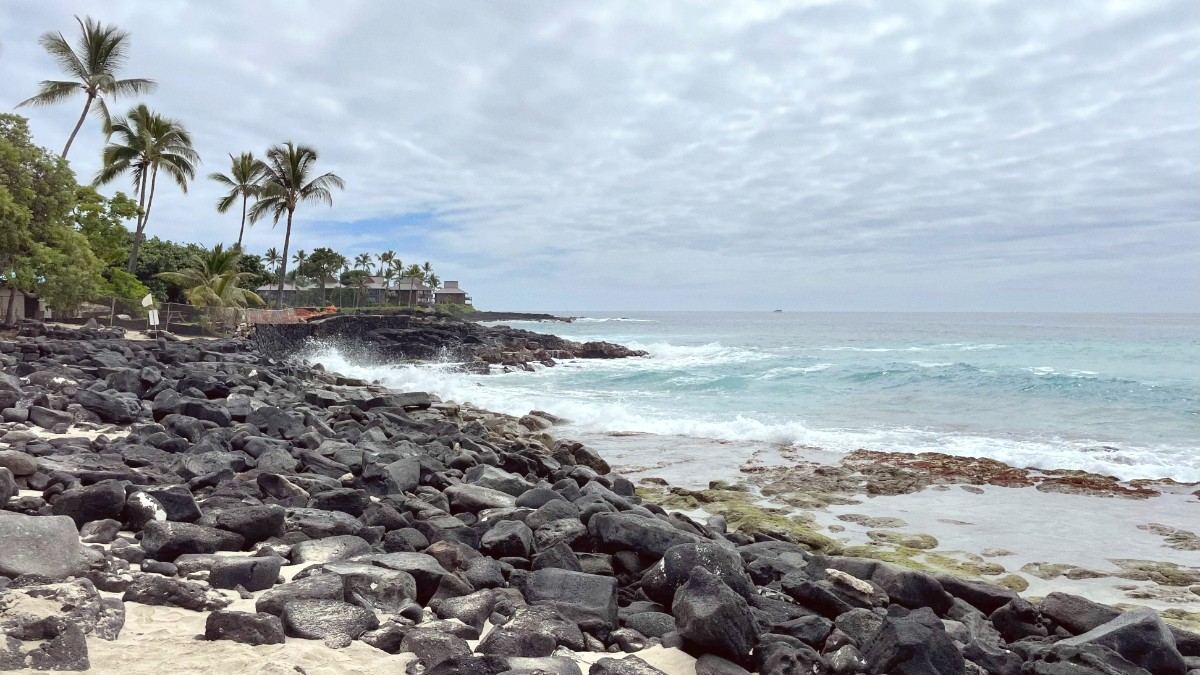
Hawaii, USA
AT&T, Verizon, and T-Mobile are the main mobile providers. Prepaid SIM cards are available from carrier stores or major retailers. eSIM activation is possible for modern phones, allowing digital plan setup without a physical SIM card. Consider Airalo for eSIMs for global connectivity.
Most hotels and resorts offer free Wi-Fi, with some offering premium tiers. Many restaurants and cafes provide free Wi-Fi. Public Wi-Fi hotspots are limited outside businesses. Cellular data coverage is generally good in Kailua-Kona and along major highways. Expect spotty or no service in remote areas. For reliable portable Wi-Fi, explore Solis Wi-Fi devices.
English and Hawaiian are the official languages. English is universally spoken and understood, so communication for English speakers is seamless. Learning a few Hawaiian words, like "Aloha" (hello, goodbye, love) and "Mahalo" (thank you), is a sign of respect and is appreciated by locals. For deeper language learning, consider Rosetta Stone.
U.S. Postal Service (USPS) post offices are available in Kailua-Kona for sending postcards or packages. Private carriers like FedEx and UPS also have service points for expedited shipping.
Check mobile provider coverage maps, as service may vary in remote areas. ESIMs offer a convenient digital option for connectivity.
Familiarize yourself with typical operating hours for efficient daily planning.
Generally open from 9:00 AM to 6:00 PM or 7:00 PM. Shopping centers and larger stores may open until 9:00 PM.
Breakfast: 7:00 AM - 10:00 AM. Lunch: 11:00 AM - 2:00 PM. Dinner: 5:00 PM - 9:00 PM or 10:00 PM. Some casual eateries and food trucks may have extended hours.
Supermarkets like KTA Super Stores and Safeway typically open from 6:00 AM to 10:00 PM or 11:00 PM.
Banks generally operate Monday through Friday, from 9:00 AM to 4:00 PM or 5:00 PM. ATMs are widely available at banks, credit unions, convenience stores, grocery stores, and resorts throughout Kailua-Kona.
U.S. Federal Holidays lead to closures for banks, post offices, and government offices. Retail and tourism businesses generally open but may have reduced hours or higher visitor numbers. Hawaii State Holidays (Prince Kūhiō Day, King Kamehameha Day, Statehood Day) may lead to closures for some local businesses or government services.
For daily planning, confirm operating hours directly with businesses. Holidays may bring reduced hours or higher visitor numbers.
Hawaii culture calls for thoughtful interactions.
A simple "Aloha" is a common and appreciated greeting or farewell. Handshakes are typical for introductions. The "shaka" sign (thumb and pinky extended, other fingers curled) is a friendly local greeting, conveying "hang loose," "thank you," "hello," or "goodbye."
Dress is generally casual throughout Hawaii. For most daytime activities, shorts, t-shirts, and sundresses are suitable. For dinner at nicer restaurants, "resort casual" is appropriate (e.g., a collared shirt for men, a dress or slacks for women). When visiting religious sites (churches, heiau), respectful dress (shoulders and knees covered) is appreciated.
Always ask permission before taking photos of people, especially children, to respect their privacy. Be respectful at sacred sites (heiau, burial grounds); some may prohibit photography or have specific rules. Do not photograph military installations or restricted areas. Use drones responsibly, adhering to all FAA and local regulations. Many areas, including state parks and near airports, have restrictions.
Hawaii is generally very welcoming and progressive. Discrimination based on sexual orientation or gender identity is prohibited by state law. Same-sex marriage is legal. Kailua-Kona is an inclusive destination.
Practice the 'Aloha Spirit': be patient, friendly, and respectful in all interactions with locals.
Kona aspires to cater to travelers with varied accessibility needs.
Major hotels and resorts generally comply with ADA (Americans with Disabilities Act) standards, offering accessible rooms, ramps, and elevators. Public buildings and newer attractions often feature accessible designs. Older, historical sites may have limited accessibility due to their preserved nature.
Some popular beaches, like Kahaluʻu Beach Park and Hapuna Beach State Recreation Area, offer accessible pathways or beach wheelchairs for loan. Puʻuhonua o Hōnaunau and Kaloko-Honokōhau National Historical Parks have accessible pathways at their visitor centers and some trail sections. All Hele-On public buses are wheelchair accessible. KOA airport is wheelchair accessible with ramps and assistance available.
Some tour operators may offer services or accommodations for visually or hearing impaired travelers; inquire in advance. Assistance animals are generally permitted in public places.
The Hawaii State Disability and Communication Access Board is a resource for accessibility information in Hawaii. Contact specific hotels, attractions, and tour operators directly to confirm their current accessibility features and services. This approach best addresses specific needs.
Contact specific hotels, attractions, and tour operators directly to confirm their current accessibility features and services. This practice best addresses specific needs.